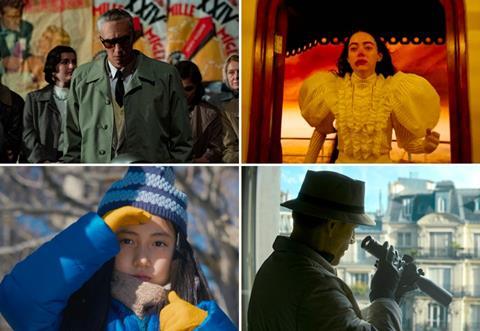
The 80th edition of the Venice Film Festival wrapped on September 9 with Yorgos Lanthimos’ acclaimed Poor Things taking the Golden Lion for best film.
Screen considers the big talking points from an 11-day festival marathon, which opened with Edoardo De Angelis’ Commandante and closed with J.A. Bayona’s Society Of The Snow.
The strikes were the main talking point
The challenges keep on coming for festival directors. First, they had to navigate Covid restrictions, now it is the ongoing Hollywood strikes. Venice artistic director Alberto Barbera insisted the strikes had barely affected his selection, with the biggest impact being the loss of Luca Guadagnino’s festival opener Challengers and its replacement by Comandante. As a stand-in, Comandante struggled in the spotlight and would likely have been better received in a less prominent slot. The red carpet preceding the opening ceremony had a decidedly low-key feel, particularly following the mania for Harry Styles, Florence Pugh and Timothee Chalamet at last year’s festival. It set the tone for the first few days of the festival, which opened amid pouring rain and felt eerily quiet. It only seemed to get going properly when higher-profile titles including Michael Mann’s Ferrari started to premiere.
By day five, the festival was saying ticket sales were actually up on 2022, despite the strike. Throughout, though, the strikes were the major talking point. Venice Competition jury head Damien Chazelle as well as fellow jurors directors Martin McDonagh and Laura Poitras donned strike-supporting T-shirts, while most US directors and talent attending press conferences had to tackle questions about the labour dispute.
Far fewer A-listers than normal attended to promote their work; among the missing were Bradley Cooper for Maestro and Emma Stone for Poor Things. That being said, the ship that is the Venice film festival sailed on regardless. A handful of US stars including Adam Driver and Jessica Chastain were able to lend some star wattage thanks to waivers for independent films from SAG-AFTRA. With so many stars unable to attend, the spotlight fell on high-profile directors including David Fincher, Wes Anderson and Sofia Coppola. Poor Things brought its key head of departments – from make-up through to production design – in place of star Emma Stone. Neither Cooper nor Carey Mulligan were able to soak up the applause at the premiere of Leonard Bernstein-biopic Maestro: instead, Bernstein’s children took the film’s seven-minute standing ovation at the Palazzo del Cinema, gamely conducting to the music over the closing credits.
Venice lives up to its reputation as an awards season launchpad
Despite the strikes, the overall consensus was the Venice 2023 competition had strong films playing right until the end. Yorgos Lanthimos’s science fiction black comedy Poor Things received rave reviews and its Golden Lion win has helped to cement its place as an awards favourite (despite worries that it might be slapped with a dreaded NC-17 rating in the US for its sex scenes). Jessica Chastain and Peter Sarsgaard emerged as contenders for Michael Franco’s Memory, while Maestro is likely to be pushed in multiple categories by Netflix following a favourable reception. Ferrari is another awards possible following its debut, despite mixed reviews. Two migration dramas also stood out at Venice – Agnieszka Holland’s Green Border, winner of the special jury prize, and Matteo Garrone’s Io Capitano which won Garrone the best director prize. In Critics’ Week, it was Luna Carmoon’s Hoard that impressed with three prizes. Among the critical misfires at Venice this year were Harmony Korine’s experimental Aggro Dr1ft, shot entirely with thermal imaging and without a screenplay, and Roman Polanski’s The Palace. The excoriating reviews for the latter prompted artistic director Alberto Barbera to defend the film, unconvincingly, in a Screen interview.
A controversial trio
The inclusion of Polanski’s film as well as Woody Allen’s Coup De Chance and Luc Besson’s Dogman in official selection was always going to be a major talking point on the Lido. For many, the decision to include three directors whose careers have been engulfed in legal controversy was a misstep – one that overshadowed coverage of other films as well as denying slots to a more representative selection of filmmakers. A topless protest disrupted the premiere of Allen’s film, while French film collective Tapis Rouge, Colere Noire placed messages around Venice criticising the inclusion of the three men at the festival.
Of course, it’s important to state that neither Allen or Besson have ever been found guilty of wrongdoing. And Allen’s film in particular, shot in French, gained generally favourable reviews. Some don’t get what all the fuss is about: the #MeToo movement has never gained as much momentum in Italy as it has in the US and the UK (Besson was loudly cheered and applauded at his festival press conference). But many think the festival should be doing much more to improve representation, and that it could have included other filmmakers in its line-up. Legendary Italian filmmaker Liliana Cavani, for example, called for greater recognition of female filmmakers at the opening ceremony when she received the honorary Golden Lion award recognising her career. “I’m the first female person to receive this award,” noted the 90-year-old Cavani. Ava DuVernay, who became the first US Black female filmmaker to have a film in competition with Origin, said: “I can’t tell you how many times I’ve been told, ‘Don’t apply to Venice, you won’t get in, it won’t happen’.”
Too many Italian films?
Maybe it was the strike or a boom in Italian production, but this year’s festival was positively teeming with Italian films. There were six in competition alone, far more than the traditional three, while another five played out of competition and three were selected for Horizons. But few critics thought it was a good idea to programme six in competition: the genre films Comandante and Adagio may have been better served by an out of competition slot, while Enea could have sat better in Horizons. Of the remaining three – Lubo, Finally Dawn and Me Captain – only the latter two would have stood a chance of being selected for the Cannes competition. The idea that more Italian films were needed for competition this year to make up a shortfall caused by the ongoing strikes doesn’t really stand up – there were at least three international films in Horizons that could easily have made the main competition: Explanation For Everything, Housekeeping For Beginners and Tatami. Plus, it’s not as if US films were lacking – what was really lacking were titles from Asia (apart from Silver Lion winner Evil Does Not Exist), Africa and (apart from El Conde) Latin America.
What next for Alberto Barbera?
This year marked Barbera’s 12th consecutive edition as artistic director (and 17th overall including his previous 1998-2002 reign), making him easily the longest-serving artistic director in Venice’s history. When he started, many of the US studios had simply stopped coming, preferring to go to Toronto – leaving Venice at risk of becoming a second-rate film festival. Since then, Barbera has hugely enhanced the festival’s reputation by drawing high-profile films, stars – and crowds to the Lido. His current contract expires at the end of next year, after the 81st edition of the festival. There is plenty of chatter that this position could be under threat as a result of Italy now being led by Georgia Meloni’s right-wing government. Italian newspapers have already speculated that Barbera’s boss, Biennale’s president Roberto Cicutto – whose term ends in March 2024 – will not have his role renewed for a second term and will be replaced by an executive with more right-leaning political views.
Lee Marshall contributed to this report.


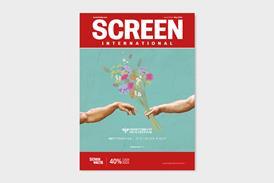
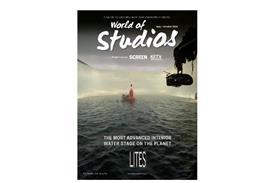
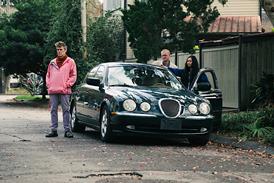


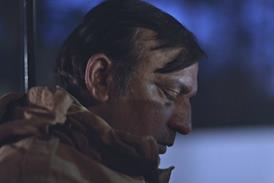
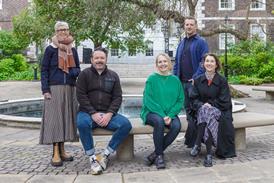



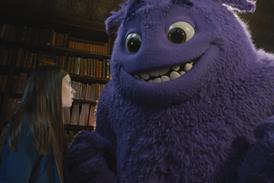
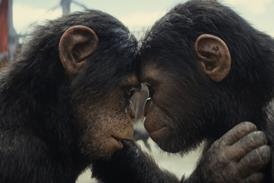
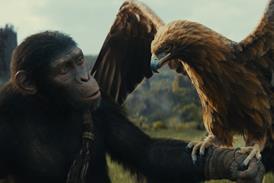










No comments yet